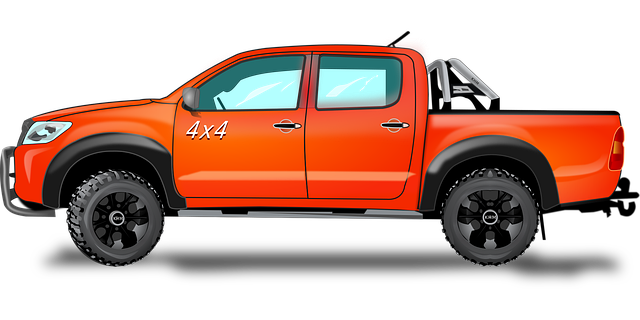Brake calipers are critical for safe and efficient Brownsville Texas fleet truck maintenance. They apply pressure to brake pads through a piston mechanism, controlling wheel rotation. Regular inspection, pad replacement, lubrication, and bleeding prevent caliper failures, reduce downtime, and enhance performance. Understanding caliper types (disc vs drum) and addressing issues like wear and corrosion is vital for maintaining vehicle safety and efficiency in Brownsville's bustling streets.
Brake calipers play a critical role in maintaining safe and efficient fleet truck operations in Brownsville, Texas. Understanding these components is key for effective maintenance. This article breaks down the essentials: from the function and working parts to different types, regular inspection tips, common issues, and replacement guidelines. Learn how to optimize your caliper performance for enhanced trucking safety and efficiency in this comprehensive guide tailored for Brownsville’s fleet truck maintenance needs.
- Understanding Brake Calipers: Their Function and Importance in Brownsville Texas Fleet Truck Maintenance
- Components of a Brake Caliper: How They Work Together to Stop Your Truck
- Types of Brake Calipers Used in Trucks: Disc vs. Drum Calipers Explained
- Regular Inspection and Maintenance Tips for Optimizing Caliper Performance
- Common Issues with Brake Calipers and When to Replace Them
Understanding Brake Calipers: Their Function and Importance in Brownsville Texas Fleet Truck Maintenance

Brake calipers are a critical component in Brownsville Texas fleet truck maintenance. Their primary function is to squeeze and apply pressure to the vehicle’s brake pads, enabling effective braking. This essential part plays a pivotal role in ensuring the safety and efficiency of commercial vehicles.
In the dynamic landscape of Brownsville Texas fleet truck maintenance tips, understanding the intricacies of brake calipers is paramount. Regular inspection and timely replacement are vital to prevent unexpected failures, reduce downtime, and maintain optimal performance. By prioritizing brake caliper care, fleet managers can contribute to enhanced safety standards and improved operational reliability for their vehicles.
Components of a Brake Caliper: How They Work Together to Stop Your Truck

The brake caliper, a key component in your truck’s braking system, is composed of several parts that work harmoniously to bring your vehicle to a stop. At its core, the caliper houses the brake pads, which are pressed against the rotors when you apply pressure on the brakes. This friction between the pads and rotors slows down and eventually stops the rotation of your truck’s wheels.
In Brownsville Texas fleet truck maintenance tips, understanding how these components interact is crucial for ensuring safe and efficient stopping power. The caliper’s design allows it to clamp down on the rotors with precise force, making adjustments through a piston mechanism that pushes against the pads. This dynamic allows your truck to come to a controlled stop, even under heavy loads or during emergency situations. Regular maintenance, including inspecting for wear and tear, replacing pads when necessary, and lubricating sliding parts, is essential to keep this intricate system functioning optimally.
Types of Brake Calipers Used in Trucks: Disc vs. Drum Calipers Explained

When it comes to truck maintenance in Brownsville, Texas, understanding the types of brake calipers is crucial. Trucks can be equipped with either disc or drum calipers, each serving distinct purposes and offering unique advantages.
Disc calipers are a popular choice for modern trucks due to their superior performance and efficiency. These calipers use a floating pin design that allows for more precise braking control, resulting in shorter stopping distances and improved stability. Disc brakes also offer better heat dissipation, reducing the risk of overheating during heavy-duty operations. On the other hand, drum calipers, while still widely used, are known to have a simpler design and are generally less expensive than disc calipers. They work by pressing against the inside of the drum, converting the vehicle’s kinetic energy into heat, which helps slow down the truck. However, drum brakes may require more maintenance due to their exposure to road debris and can be less efficient in extreme conditions compared to their disc counterparts. Choosing between these two types depends on various factors, including vehicle type, intended use, budget, and personal preference, all of which play a significant role in maintaining your fleet’s safety and efficiency in the vibrant Brownsville landscape.
Regular Inspection and Maintenance Tips for Optimizing Caliper Performance

Regular inspection and maintenance are key to optimizing caliper performance for your fleet trucks in Brownsville, Texas. Check brake pads for wear and tear, ensuring they meet manufacturer recommendations for replacement. Inspect caliper pins, pistons, and seals for signs of corrosion or damage. Lubricate pins and slides as per the vehicle’s owner manual to prevent sticking and ensure smooth operation.
Additionally, regularly bleed the brake system to remove any air bubbles, maintaining optimal braking efficiency. Keep an eye out for unusual noises or pulsing sensations during braking, indicating potential caliper issues that require immediate attention. Regular maintenance not only extends caliper lifespan but also enhances safety for your fleet, crucial for navigating Brownsville’s bustling streets.
Common Issues with Brake Calipers and When to Replace Them

Common issues with brake calipers can include wear and tear, corrosion, and damage from accidents or rough road conditions. These problems can lead to reduced braking performance, increased stopping distances, and even complete failure of the caliper, posing a significant safety risk for Brownsville Texas fleet drivers. When considering replacement, it’s crucial to look for signs like caliper warping, excessive squealing or grinding during braking, or visible damage. Regular maintenance checks can help identify these issues early on, preventing more serious problems down the line. For fleet owners in particular, staying on top of brake caliper health is essential to maintaining vehicle safety and efficiency, especially for trucks navigating the bustling streets and highways around Brownsville.
Understanding and maintaining brake calipers is a vital aspect of Brownsville Texas fleet truck maintenance. By knowing their components, types, and common issues, fleet managers can ensure optimal performance and safety on the road. Regular inspections and prompt replacements for worn-out parts are key to preventing costly breakdowns. Remember that, by prioritizing caliper care, you’re not just maintaining trucks; you’re fostering a safe and efficient driving experience for your fleet in the bustling Brownsville landscape.



